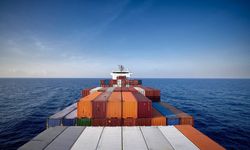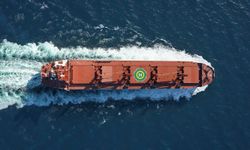Maritime Education
Your maritime diploma must be obtained mostly at the beginning of your career. We have already published an article sharing the best universities according to countries, you can read it here. Even though practical information is vital on board, don't neglect that maritime education obtained from school will stay with you during your entire career.
Therefore, start with a strong foundation in mathematics, physics, and geography. Enroll in a maritime academy or a university with a maritime studies program. Degrees in marine transportation, nautical science, or a related field are beneficial. Today, many shipping companies conduct their own courses teaching candidates after they hire some to appoint ships.
Obtain Necessary Certifications
When you imagine a vessel the first thing that comes to your mind is the “Safety First” word on board. Whereas this word does not only consist of characters, it also involves broad, proven, and recorded certificated knowledge behind it.
That’s why they acquire certifications in line with the Standards of Training, Certification, and Watchkeeping for Seafarers (STCW). This includes courses in safety, first aid, firefighting, and survival skills.
Start with obtaining a deck officer license (such as a Third Mate license) and gradually progress to higher levels (Second Mate, Chief Mate, and finally, Master Mariner).

Gain Sea Experience
As many sailors obviously state, experience is the most crucial part of being active onboard for not only captains but also for all seafarers who even can’t find easily job with zero experience.
Consequently, accumulated sea-time experience by working on ships in various roles. You usually start as a deck officer and gain experience handling navigation, cargo operations, and ship safety. The amount of sea time required varies by country and licensing authority but typically involves several years at sea in different capacities.
Pass Examinations and Assessments
Pass written and oral examinations to progress through the ranks and obtain higher licenses. These exams test your knowledge of navigation, ship handling, safety protocols, and maritime law. Stay updated with new maritime technologies and regulations.
Life is an ongoing learning process and you will face many examinations that would appear as obstacles ahead of you. Don't forget that you will empower yourself as you surpass these obstructs though.

Climb the Career Ladder
Start as a deck officer, progress to higher ranks, and eventually qualify for a captain’s position. Demonstrate your competence, experience, and leadership skills to get promoted.
In fact, everyone talks about the hardness of working onboard currently. However, sailing has not been a piece of cake any time already as it won't probably also become like that. Therefore, it can observed that there is a tendency for many seafarers to leave their off-shore positions after gaining particular experience onboard. Subsequently, you might face temporary problems in adapting your sea skills to your land-based job, as many seafarers already experience. You should not give up trying it either you work on board or land.







